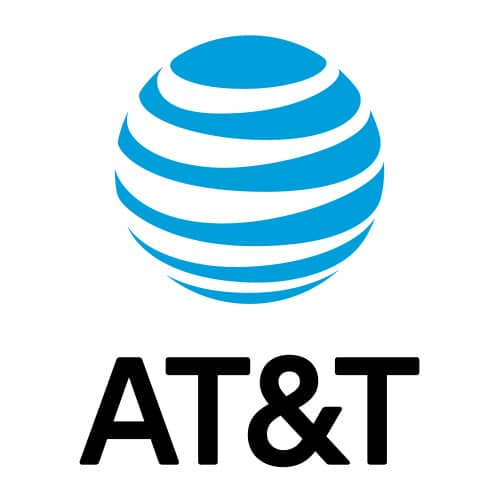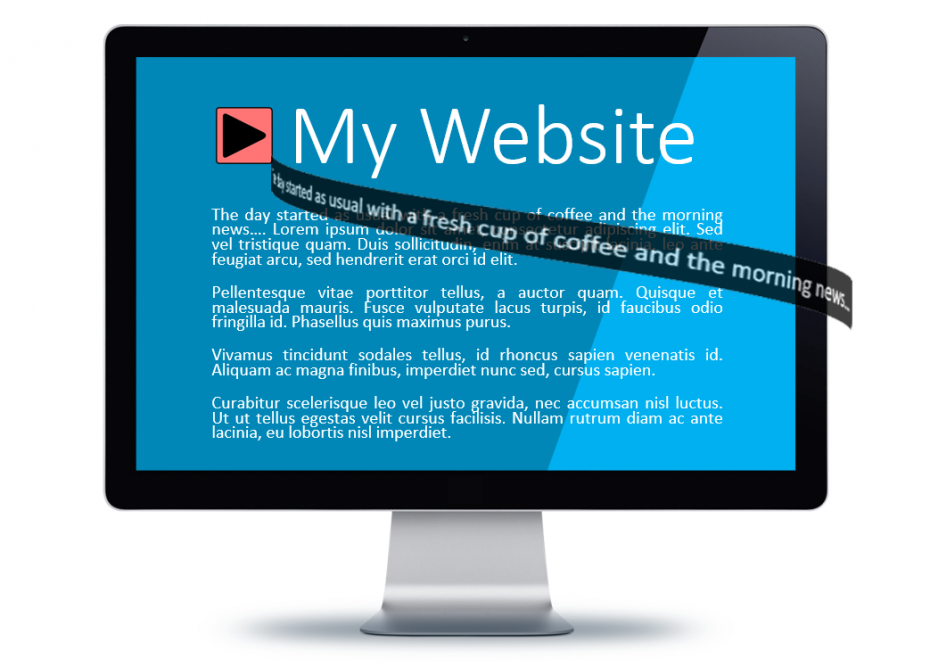Introduction
Text to speech technology has evolved by leaps and bounds in recent years. Advanced AI and machine learning algorithms have enabled speech synthesis to sound more natural than ever before. This has led to a proliferation of text to speech solutions from various providers catering to different business needs. In this blog, we evaluate and rank the top 13 text to speech software providers of 2023 to help businesses selecting the right option.
Methods of Evaluation
To evaluate and rank the top players, we considered various parameters including voice quality, naturalness and range of accent options; text normalization and processing capabilities; pricing and business models; support offerings; integration capabilities through APIs; and online reputation indicators such as number of backlinks, website traffic and keyword search trends on Google and Bing. This holistic analysis helps provide a comprehensive view of each vendor and how suitable they would be for different use cases and budgets.
1. IBM Watson Text to Speech
IBM Watson Text to Speech is IBM’s text-to-speech solution powered by IBM’s AI technology. It allows developers to easily add speech synthesis capabilities to any application through simple API calls. IBM Watson Text to Speech uses advanced deep learning to generate natural sounding speech from text.
Pros: Some key advantages of IBM Watson Text to Speech include: Top quality voices that sound natural and lifelike. Easy to integrate APIs that developers can quickly add speech capabilities with. Supports numerous languages so it can be customized for global audiences. Offers custom voice models so custom voices can be trained for domain-specific applications.
Cons: One potential disadvantage is that custom voice models require a significant amount of data to train effectively, which may not be feasible for all projects.
Pricing: IBM Watson Text to Speech has a free plan for up to 1 million characters per month. Paid plans start at $0.0075 per million characters for standard quality voices and $0.015 per million characters for high quality voices. Volume-based discounts are available for larger projects.
Some key statistics about IBM Watson Text to Speech include: Supported over 40 different voices and accents, including English, Spanish, French, Portuguese and many others. Can generate over 1 million words per minute. Has an average character error rate of less than 1%. Integrates seamlessly via RESTful API, SDKs or the IBM Cloud.
2. AT&T Text to Speech
AT&T Text to Speech is a cloud-based text to speech solution from telecom giant AT&T. With over a decade of experience in telecommunications, AT&T Text to Speech provides natural sounding synthesized voices for a wide variety of applications and platforms.
Pros: Key advantages of AT&T Text to Speech include:
– Large catalogue of natural sounding voices
– Seamless integration with AT&T Communication APIs
– Dedicated account managers and support
– Focus on scalable, secure and reliable text to speech solutions
Cons: The main disadvantage is that pricing can be higher compared to some other text to speech providers due to AT&T’s focus on enterprise-grade reliability and support.
Pricing: AT&T Text to Speech pricing starts from $0.0075 per synthesized text minute for lower volumes. There are volume-based discounts available for clients with higher monthly usage. Additional services like dedicated account management and priority support are available for an annual fee.
Some key stats about AT&T Text to Speech:
– Over 30 natural sounding voices in multiple languages including English, Spanish, Mandarin
– Integration with major AT&T communication APIs like SMS, voice and video
– Supported by a team of over 100 support representatives
– Secures over 1 billion requests per day with 99.999% uptime
3. Nuance Text to Speech
Nuance Text to Speech is a leading text-to-speech software developed by Nuance Communications. Nuance has been developing speech and imaging solutions for over 50 years and is considered a leader in conversational AI and voice technologies. Their text-to-speech solutions allow converting written text into natural-sounding synthesized speech for a variety of applications.
Pros: Some key advantages of Nuance Text to Speech include: Wide range of customizable voices for different usages and domains; Easy to integrate RESTful APIs; Focus on security, reliability and scalability; Leader in conversational AI with continuous innovations; Constantly adding new languages and improving voice quality
Cons: The key disadvantages are: Can be expensive for some smaller businesses or individual users depending on needed volumes and languages; Requires internet connectivity for online usage; Not as flexible as some open-source alternatives for customization
Pricing: Pricing depends on the needed languages, volumes, usage types etc. but generally starts from $0.0015-$0.005 per synthesized word for standard single language packages. Volume discounts are available. They also offer subscription plans tailored to different business needs starting at around $500-1000 per month.
Some key stats about Nuance Text to Speech: They currently support over 30 languages and dialects with over 220 unique regional accents and varieties. They have synthesized over 500 million words of natural-sounding text into speech. Their neural text to speech models are optimized to deliver high-fidelity speech that sounds more human than ever before.
4. ReadSpeaker
ReadSpeaker is a leading text-to-speech software provider founded in 1997. They provide lifelike text-to-speech solutions to make products and services more engaging. Their text-to-speech technology can be integrated into websites, software applications, eBooks, audiobooks and more.
Pros: Some key advantages of ReadSpeaker include: – Outstanding text clarity – Their text-to-speech voices sound natural and conversational – Their solutions can be used across a wide range of applications like mobile apps, browsers, eBooks, audiobooks etc. – They offer competitive pricing models for different business needs
Cons: One potential disadvantage is that the standard voices may not be as natural sounding as more expensive voice packages. However, ReadSpeaker also offers very high quality voices for applications that require superior audio quality.
Pricing: ReadSpeaker offers different pricing plans depending on business needs and usage types. This ranges from free trials and low-cost monthly/annual packages for smaller businesses to custom enterprise licenses for large organizations with high volume usage.
Some key stats about ReadSpeaker include: – More than 1 billion words converted to audio each day – Available in over 38 languages and dialects – Used by over 50,000 customers worldwide including BMW, Unicef, Harvard Business Review
5. Avaya Text to Speech
Avaya Text to Speech is a cloud-based text-to-speech solution from Avaya, a leader in unified communications solutions. The text-to-speech technology is optimized for call centers and business communications applications by providing natural sounding voices that can be seamlessly integrated into various communication channels.
Pros: Some key advantages of Avaya Text to Speech include:
– Specialized for call centers and business communications workflows.
– Extensive portfolio of high quality voices in multiple languages for global operations.
– Easy integration with existing Avaya solutions like contact centers, messaging platforms and communications apps.
Cons: A potential disadvantage is that Avaya Text to Speech may only be suitable for businesses already using other Avaya solutions due to its optimization for Avaya workflows. Standalone use without other Avaya products could have limited features.
Pricing: Avaya Text to Speech pricing starts at $0.0075 per minute of speech synthesized. Volume discounts are available for higher usage. It is priced cost-effectively for business customers and integrated with Avaya subscription licensing and billing models.
Some key stats about Avaya Text to Speech include:
– Over 30 voice options in multiple languages including English, Spanish, French, German and Mandarin.
– Seamless experience across voice, IVR systems, chatbots and other digital touchpoints.
– Easy to integrate with Avaya Contact Center solutions for unified customer experience.
6. Descript
Descript is an all-in-one video and podcast editing software that makes the editing process easy and accessible. Founded in 2021, Descript is based in San Francisco and has raised over $50 million in funding.
Pros: Some key advantages of Descript include:
– Automatic captions and transcripts save a huge amount of time
– Accessibility features like transcripts make content available to more people
– Seamless collaboration allows multiple people to work on projects simultaneously
– Fair pricing at $12.99/month for Pro plan and $24.99/month for Business plan with no long term commitments
Cons: One potential disadvantage is that as an AI-powered software, the automatic captions and transcripts may not always be 100% accurate and may require human review and editing in some cases
Pricing: Descript offers the following pricing plans:
– Free Plan: Up to 60 minutes of audio/video and 3 project collaborators
– Pro Plan: $12.99/month – Unlimited editing and 5 project collaborators
– Business Plan: $24.99/month – Unlimited editing, no watermarks and 10 project collaborators
Some key stats about Descript include:
– Used by over 500,000 creators globally
– Automatically generates captions and transcripts for video and audio
– Integrates seamlessly with platforms like YouTube, Google Drive, Dropbox and more
– Features AI technology to simplify complex editing tasks
7. Acapela Group
Acapela Group is a leader in text-to-speech (TTS) and voice biometrics technology. Founded in 1997, Acapela Group has focused on developing advanced text-to-speech synthesis solutions using neural network and deep learning techniques. They currently offer over 30 languages and 200 synthesized voices that can be customized for various domains and applications.
Pros: Some of the main advantages of Acapela Group’s text-to-speech software include:
– High quality synthesized voices that sound natural and lifelike
– Robust text analytics and preprocessing for clean voice outputs
– Domain specific voice solutions tailored for vertical applications
– Advanced customizability including custom voices, pronunciations and attributes
Cons: One potential disadvantage is the cost for licensing the TTS technology. While the voices and solutions are of high quality, larger deployments or customization work may require significant licensing investments.
Pricing: Acapela Group offers both subscription and perpetual licensing models for their text-to-speech technologies. Pricing varies based on language, number of minutes needed, customization requirements, and other factors. For most applications, pricing starts in the thousands of dollars per year for standard pre-built voices and solutions.
Some key stats about Acapela Group’s text-to-speech technology include:
– Over 25 years of experience in speech technology
– Developed and supports over 30 languages
– More than 200 high quality synthetic voices
– Millions of voice minutes generated each month
– Custom voice solutions for domains like healthcare, automotive, education and more
8. Responsive Voice
Responsive Voice is a free and open source text-to-speech software that provides natural sounding voices. It has been designed to be lightweight, customizable and easy to integrate into any project or website.
Pros: The main advantages of using Responsive Voice include:
– It is completely free and open source meaning there are no licensing fees.
– Support for multiple languages allows content to be read aloud in the language of your choice.
– Framework plugins make it very easy to add text-to-speech functionality to websites and applications.
– Comprehensive documentation and support resources are available to help with implementation and troubleshooting.
Cons: Some potential disadvantages include:
– As an open source project, development resources may be more limited compared to commercial alternatives.
– Only online hosted voices are available by default, offline voices require additional setup.
– Fewer voice options compared to paid text-to-speech services with custom voice modeling capabilities.
Pricing: Responsive Voice is completely free and open source. There are no licensing fees or costs to use the software in both commercial and non-commercial projects.
Some key stats about Responsive Voice include:
– Supports over 51 different voices across multiple languages including English, Spanish, French, German, Portuguese and more.
– Plugins available for major frameworks like JavaScript, Node.js, React, Angular and Vue making integration simple.
– Actively maintained with an extensive documentation library to help with implementation.
9. Lyrebird
Lyrebird is a text-to-speech startup that uses AI to synthesize human voices. Their flagship product is a web-based text-to-speech platform that allows users to generate realistic synthetic audio from text.
Pros: Some key advantages of Lyrebird include:
– Highly realistic voices that sound very close to human speech.
– Easy to use web interface that doesn’t require any downloads or software.
– Powerful speech synthesis engine that can generate audio on demand from text.
– Affordable pay-as-you-go pricing model for most use cases.
Cons: A potential disadvantage is that the free tier has limited functionality and outputs watermarked audio, though there are also inexpensive paid tiers available.
Pricing: Lyrebird offers three pricing tiers:
– Free tier: Limited to 1 minute of synthesis per day and outputs watermarked audio.
– Standard: $29/month for 10,000 characters synthesized per month.
– Professional: Custom enterprise plans for large volumes of text.
Some key stats about Lyrebird include:
– Supports over 30 voice models in a variety of accents and languages.
– Synthesizes speech in real-time with latency under 500ms.
– Over 5 million words of text synthesized per day.
– Founded in 2017 and is based in Montreal, Canada.
10. LumenVox
LumenVox is a leader in AI-powered speech recognition and voice biometrics technology. Founded in 2000, LumenVox helps organizations enhance customer experiences and improve operations through human-like speech processing. The company’s software development kit (SDK) and application programming interfaces (APIs) enable integration of speech recognition and speaker identification into various applications and devices.
Pros: Key advantages of LumenVox include:
– Custom voice modeling – Ability to build custom voice models specific to an organization’s data and needs
– Text normalization features – Corrects spelling errors and formats numbers, dates and currency amounts
– Dedicated engineering support – Expert engineers available for seamless integration and implementation support
– Trusted by top enterprises – Technology used and trusted by many large organizations worldwide
Cons: One potential disadvantage is that custom voice model building and training can be resource-intensive for very large datasets or uncommon languages/accents.
Pricing: Pricing for LumenVox is not publicly listed and depends on deployment size, languages/accents needed, required text formatting features and integration complexity. Potential customers are encouraged to contact sales for a custom quote.
Some key stats about LumenVox include:
– Processes over 10 billion minutes of speech annually
– Used by top enterprises across banking, government, healthcare and more
– Accurately recognizes 120+ languages and dialects
11. Clinc
Clinc is an AI safety startup that provides conversational AI solutions to businesses. One of their flagship products is Clinc TTS, a text-to-speech software that uses neural networks to generate natural-sounding synthesized speech from written text. With Clinc TTS, businesses can add voice to their websites, mobile apps, IoT devices and more to enhance customer experience.
Pros: Some key advantages of Clinc TTS include:
– Online web interface – No downloads or installations required, businesses can add TTS instantly on their sites.
– Affordability – Very affordable pricing plans for businesses of all sizes.
– AI safety – Clinc is focused on developing AI solutions that are helpful, harmless, and honest.
Cons: The only potential disadvantage is the limited customization options compared to other specialized TTS vendors. However, Clinc offers a good balance of affordability, quality and ease-of-use for most businesses.
Pricing: Clinc offers simple and affordable monthly/annual pricing plans for TTS starting from free to $399/month depending on usage. There is also a generous free trial available.
Some key stats about Clinc TTS include:
– Human-level naturalness – Clinc’s TTS voices sound as natural as recorded human voices.
– Over 40 voices – Businesses can choose from over 40 different voice personalities (male and female).
– Multilingual support – Voices are available in over 25 languages including English, Spanish, French, German, Mandarin etc.
12. Smart Action
Smart Action is a leading conversational AI platform provider that offers text to speech software as part of its solution. Founded in 2013, Smart Action helps brands improve customer experience and reduce costs with intelligent virtual agents. Their virtual agents are powered by advanced natural language processing capabilities to understand customer needs.
Pros: Key advantages of Smart Action’s text to speech software include its advanced NLP capabilities which allow agents to truly understand customer questions and intentions. It also offers support for a wide range of international languages so brands can deploy solutions globally. Additionally, their low-code platform makes building virtual agents easy for both technical and non-technical teams while still allowing for customization to individual customer needs.
Cons: As an all-in-one conversational AI platform, integration with other systems may be more limited than point solutions. However, Smart Action aims to be a fully turnkey solution.
Pricing: Pricing for Smart Action is customized based on requirements. Generally annual subscription packages start at $50,000 with volume-based discounts available.
Some key stats about Smart Action’s text to speech capabilities include: supports over 30 international languages including English, Spanish, French, Portuguese and more; achieves over 90% accuracy on common customer queries; virtual agents can be built without any coding through their low-code platform.
13. Fonetic
Fonetic is a leading text-to-speech (TTS) software provider that leverages advanced artificial intelligence and natural language processing. Founded in 2009, Fonetic helps enterprises enhance their digital experiences and workflows through human-like synthesized speech. Their TTS solutions are customizable for multiple languages and domains like healthcare, education, publishing, e-commerce and more.
Pros: Key advantages of Fonetic’s TTS software include: a wide range of AI-powered voices that sound natural and human-like; customizable deployment options to integrate synthesized speech seamlessly into any application or workflow; industry-specific expertise and consulting services; robust text normalization algorithms that understand contextual communications.
Cons: A potential disadvantage is that custom voice modeling and advanced customization services require additional investment beyond basic licensed packages.
Pricing: Fonetic offers flexible pricing plans including annual subscription licenses that start from $100/month for standard pre-trained voices. Custom voice modeling, advanced APIs and enterprise solutions require contacting sales for custom pricing.
Some key stats about Fonetic’s TTS capabilities include: ability to generate high-fidelity synthetic speech in over 100 languages and dialects; integration with all major platforms and devices; personalized voice modelling and customization; robust text normalization for conversational contexts.
Conclusion
While all the reviewed text to speech providers are capable solutions, some stand out for their feature richness, voice quality, pricing flexibility or domain expertise. The top picks include IBM Watson, Nuance, AT&T, ReadSpeaker and Acapela Group based on the evaluation parameters. The category leaders like IBM Watson and Nuance are recommended for large enterprises prioritizing quality, reliability and customization support, while cost-effective options like ReadSpeaker and Descript are suitable for SMBs and individual developers. The choice ultimately depends on one’s specific technical and budgetary requirements.















